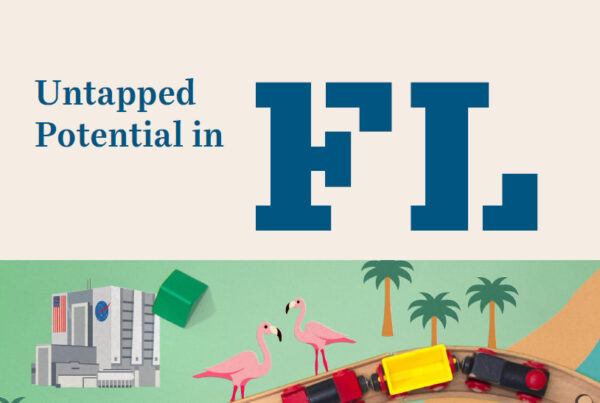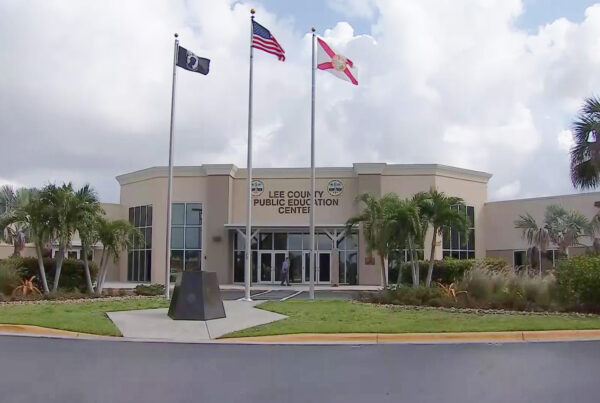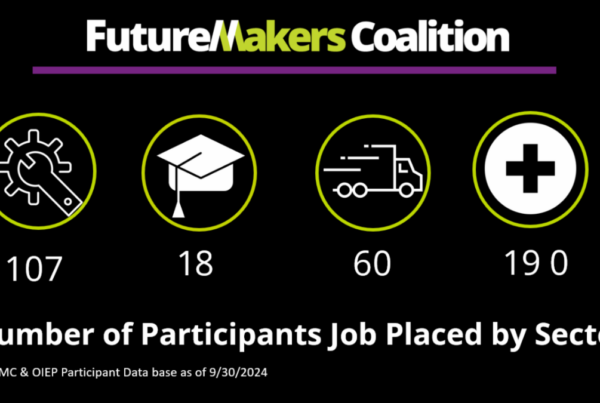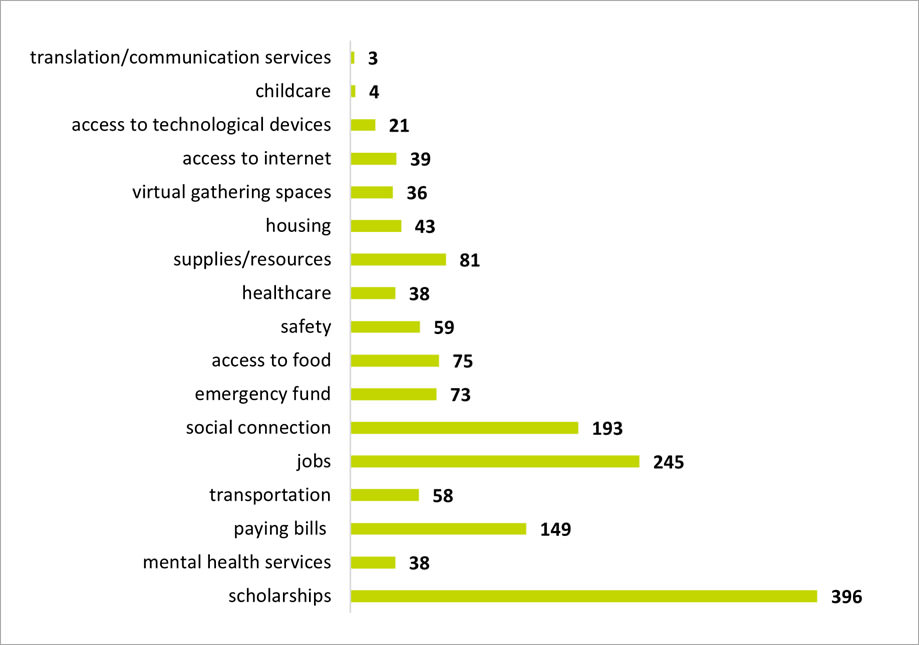
As illustrated in Figure 1 below from the recent 2020 COVID-19 Student Voice Report, almost 400 students indicated that they are in immediate need of scholarships (396), followed by jobs (245) and paying bills (149). These data are not surprising due to the unprecedented job losses among many SWFL families due to the COVID-19 pandemic (possibly requiring students to contribute a larger proportion of their job earnings to the family), as well as the expenses associated with higher education.
Figure 1: Given the effects of COVID-19, what are your immediate needs as you complete this survey?
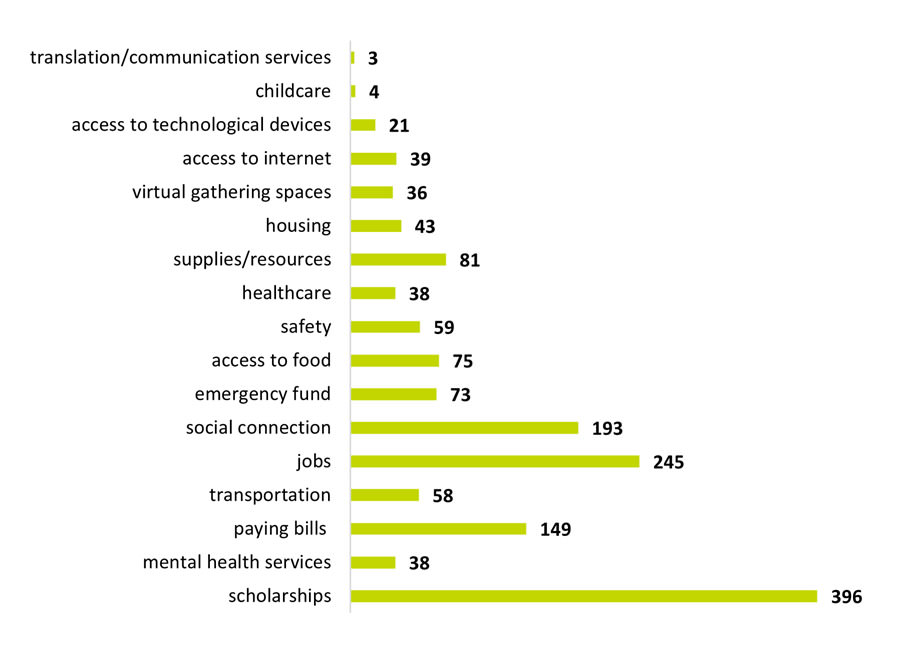
These data are also in line with another survey question to which 64% of the students replied that they believed the COVID-19 crisis will impact some part of their postsecondary journey. Unfortunately, the students’ COVID-fueled uncertainty is perhaps leading to at least one paradoxical observation: despite the students’ reported immediate need for scholarships, we are experiencing a decrease in the number of FASFA applications and a decrease in the number of scholarship applications in the Southwest Florida Community Foundation’s upcoming annual review cycle from the prior year.
The 2019 Southwest Florida Educational and Workforce Outcomes Report indicated that the FASFA completion rates among the SWFL counties were mostly below the State of Florida’s average completion rate (see Figure 2), with only Collier County outperforming the state’s average FASFA completion rate (45.7%).
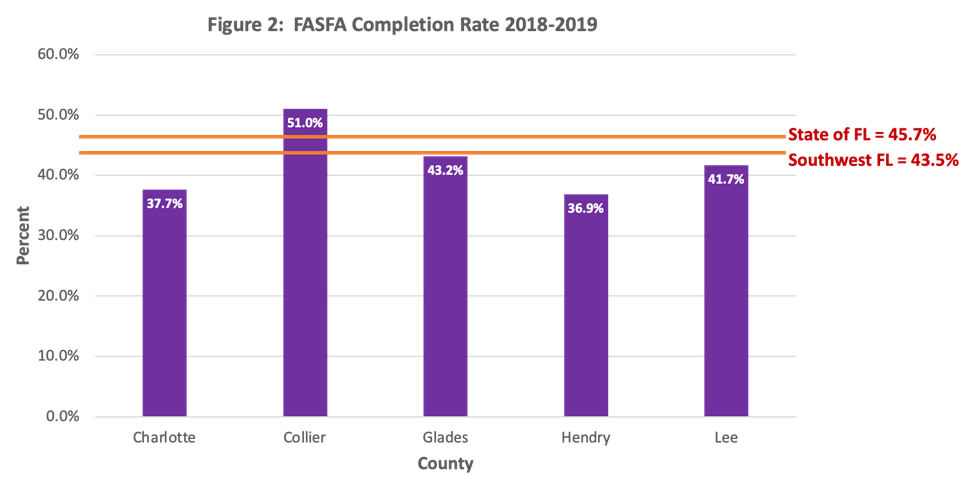
More troubling, the 2018-2019 average FASFA completion rate among the SWFL counties (43.5%) continues a worrying trend of declining FASFA completion rates since the 2016-2017 academic year (47.0%) – and the COVID crisis seems to be exacerbating an ongoing decline in this current academic year.
The FutureMakers Coalition has been committed to tackling this challenge with its FAFSA first! Campaign expertly co-chaired this year by Patrice Cunningham and Mary Meador, who are members of the Access and Entry Team. But given this year’s very unusual COVID disruptions, can more be done to bolster the Campaign’s efforts? Perhaps one idea is an “all hands on deck” call to action to ALL FutureMakers. For example, no matter what organization or business to which you belong or what your volunteer interest is as a FutureMaker, if you know a family with a high school senior, ask the student about his or her plans after high school. Are they aware of the available resources to help them plan their academic futures? Or reach out to Patrice, Mary, or info@futuremakerscoalition.com and ask how you can support the team’s work. It’s time to be both creative and aggressive to help turnaround the region’s declining FASFA completion rates and to help our seniors navigate through the COVID crisis at this pivotal time in their academic careers.

